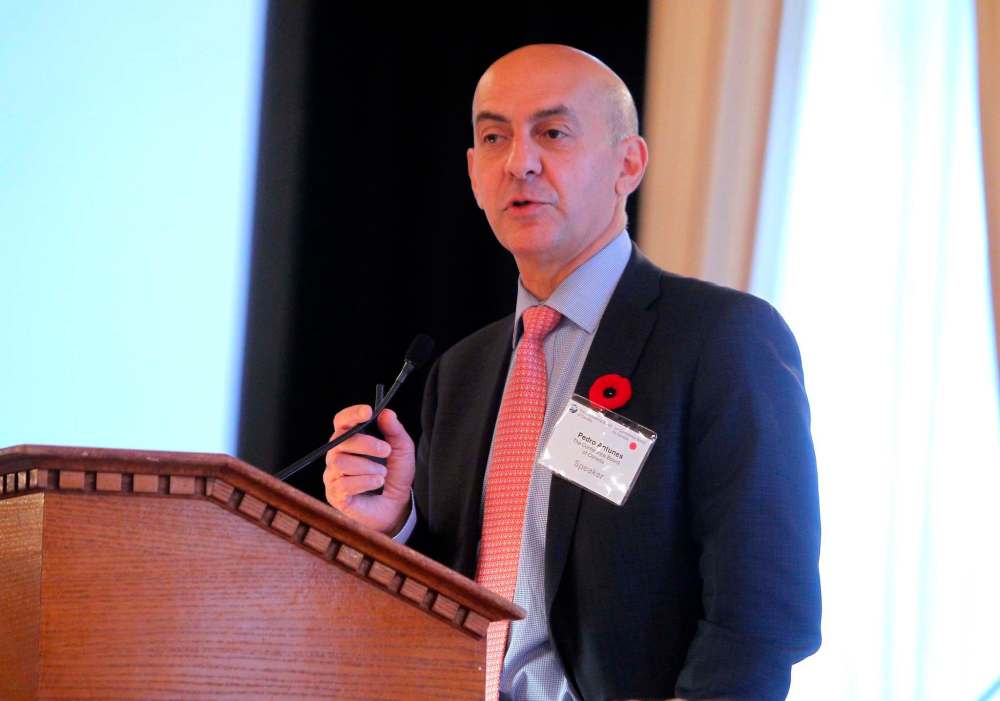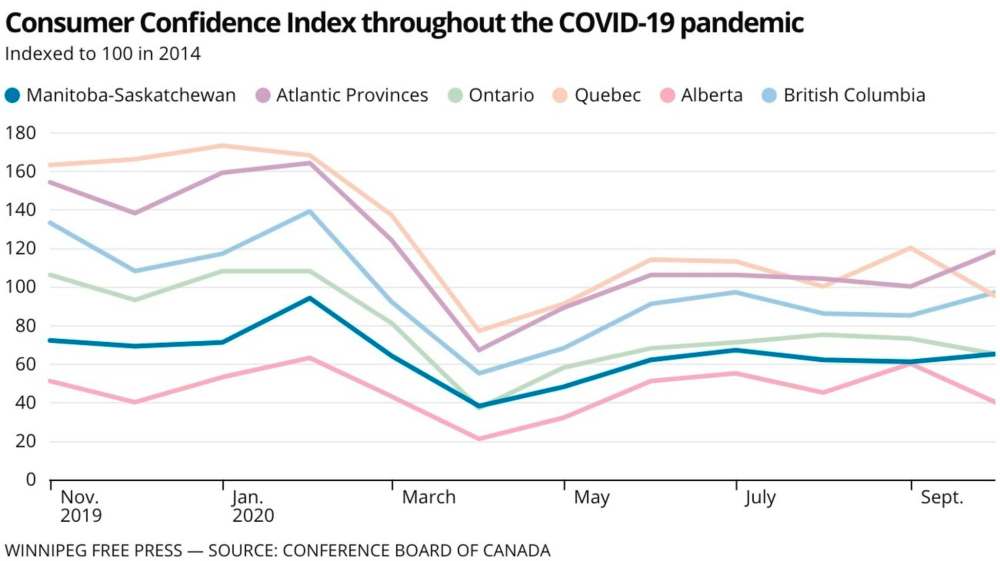‘Second wave of unemployment’ feared
Consumer confidence plunges amid surging COVID-19 cases
Advertisement
Read this article for free:
or
Already have an account? Log in here »
To continue reading, please subscribe:
Monthly Digital Subscription
$0 for the first 4 weeks*
- Enjoy unlimited reading on winnipegfreepress.com
- Read the E-Edition, our digital replica newspaper
- Access News Break, our award-winning app
- Play interactive puzzles
*No charge for 4 weeks then price increases to the regular rate of $19.00 plus GST every four weeks. Offer available to new and qualified returning subscribers only. Cancel any time.
Monthly Digital Subscription
$4.75/week*
- Enjoy unlimited reading on winnipegfreepress.com
- Read the E-Edition, our digital replica newspaper
- Access News Break, our award-winning app
- Play interactive puzzles
*Billed as $19 plus GST every four weeks. Cancel any time.
To continue reading, please subscribe:
Add Free Press access to your Brandon Sun subscription for only an additional
$1 for the first 4 weeks*
*Your next subscription payment will increase by $1.00 and you will be charged $16.99 plus GST for four weeks. After four weeks, your payment will increase to $23.99 plus GST every four weeks.
Read unlimited articles for free today:
or
Already have an account? Log in here »
Hey there, time traveller!
This article was published 27/10/2020 (1871 days ago), so information in it may no longer be current.
Consumer confidence across Canada is taking a significant turn for the worse amid heightened pandemic restrictions and a spike in COVID-19 cases — worrying economists about a “second wave of unemployment.”
Numbers released Tuesday by the Conference Board of Canada suggest consumer sentiment about future finances dropped to its lowest point since April.
Only 18.5 per cent of Canadians surveyed in October believe it’s a good time to purchase a big-ticket item, with that number even lower in Manitoba and Saskatchewan at 17 per cent.

“It’s a mix of things that’s led up to this,” says Pedro Antunes, chief economist at the board. “But the data shows that Canadians are worried about the state of our economy and that means they’re not sure it’s the right time to be spending their money.”
“The fact is,” he added, “people are preparing for another hit in the opposite direction of growth.”
The rate of economic optimism this month varies largely from region to region. In British Columbia and the Atlantic provinces, like Nova Scotia, consumer confidence logged double-digit growth. That’s compared to Quebec and Alberta, where numbers declined more than 20 points — their largest dip this year.
Those plunging figures can primarily be attributed to consumer concerns over their personal finances and job prospects, said Antunes.
“I think a big factor is that people are certainly very worried what will happen when government support programs will wind down,” he said. “They’re asking themselves big questions about how much exactly they need to be saving, considering their own finances could very well deteriorate.”
Saskatchewan and Manitoba’s consumer confidence index rose 4.3 points this month, following two consecutive months of decline. Respondents to the board’s survey in the region said they feel more optimistic about their personal finances, both current and future.
But both Prairie provinces saw sentiment about future employment conditions worsening this month, each down by up to 3.2 points.
“I don’t think this is has to with whether restrictions are being followed by individual businesses or not,” said Antunes. “However, a concern we’ve seen is how these increased restrictions will affect their own employment within the businesses at large — and in turn affect their capacity to participate in the economy.”
Loren Remillard, president and CEO of the Winnipeg Chamber of Commerce, said that’s something that worries him, too.
“As you reopen the economy, it’s only going to be as successful as the people that walk through the doors,” he said Tuesday. “And I’m very worried how these type of numbers will affect further shutdowns and closures in the coming months.”
Remillard said businesses in the city depend on the winter months leading up to the holiday season to “make or break” their net profits. With COVID-19 cases rising and consumer confidence declining, he said there is a big question looming over whether that will happen this year.
“I just hope our community businesses can survive this.”

Twitter: @temurdur
temur.durrani@freepress.mb.ca


